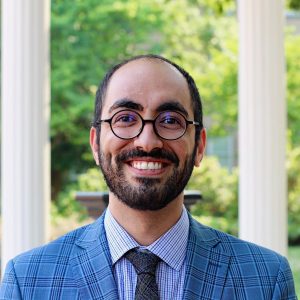
- This event has passed.
Doctoral Defense – M. Hossein Eybosh
Tuesday, August 15, 2023 @ 11:00 am - 12:30 pm
M. Hossein Eybposh Public Defense – Pegard Labs
Title: Deep Learning Methods in Computer Generated Holography
Zoom Link: https://zoom.us/j/92480627656?pwd=NCsrWUZTWFNLUHJRZCtzZW93TWV3dz09
ABSTRACT:
Computer-Generated Holography (CGH) enables the rendering of high-resolution, high-quality three-dimensional light intensity distributions by modulating coherent or partially coherent light using spatial light modulators (SLMs). Despite its promising potential across a spectrum of applications from neuroscience to entertainment, the successful implementation of CGH has been impeded by the lack of high-speed, high-quality CGH algorithms capable of determining the optimal SLM modulation pattern for any given three-dimensional light intensity distribution. This dissertation addresses this problem by introducing several novel methodologies aimed at propelling CGH toward real-world applications. First, a substantial advancement over traditional iterative techniques is presented in the form of an unsupervised deep learning-based algorithm, termed DeepCGH, that exhibits both exceptional speed and high fidelity in rendering holograms. Building on this foundation, the work then introduces DeepCGH2.0. This is an extension of DeepCGH that leverages point cloud data representation through point cloud processing networks. DeepCGH2.0 offers substantial improvements in speed, though at the cost of slight reductions in image fidelity. Recognizing the importance of effective hologram quality assessment, a semi-supervised deep learning-based image quality assessment metric, ConIQA, is developed. The unique dataset of human-rated holograms, HQA1k, was developed and used to train ConIQA. ConIQA outperforms traditional metrics, aligning more closely with human perceptions of image quality. Expanding the scope of CGH optimization, the dissertation pioneers the use of surrogate gradients for dynamic CGH. This inventive strategy takes advantage of highly digitized phase or binary amplitude modulators, facilitating the optimization of such patterns with techniques based on stochastic gradient descent. This innovative approach propels the field forward by enabling the creation of high-quality holograms with remarkably improved speed and efficiency. Finally, this work presents LightFlow, an open-source wave optics simulation toolbox. LightFlow aims to offer a practical, accessible tool for researchers and industry professionals, accelerating advancements and fostering innovation in the field. In
summary, this dissertation represents a comprehensive suite of methodologies and tools aimed at overcoming the key challenges facing CGH, paving the way for its widespread implementation in a variety of scientific and commercial applications.


